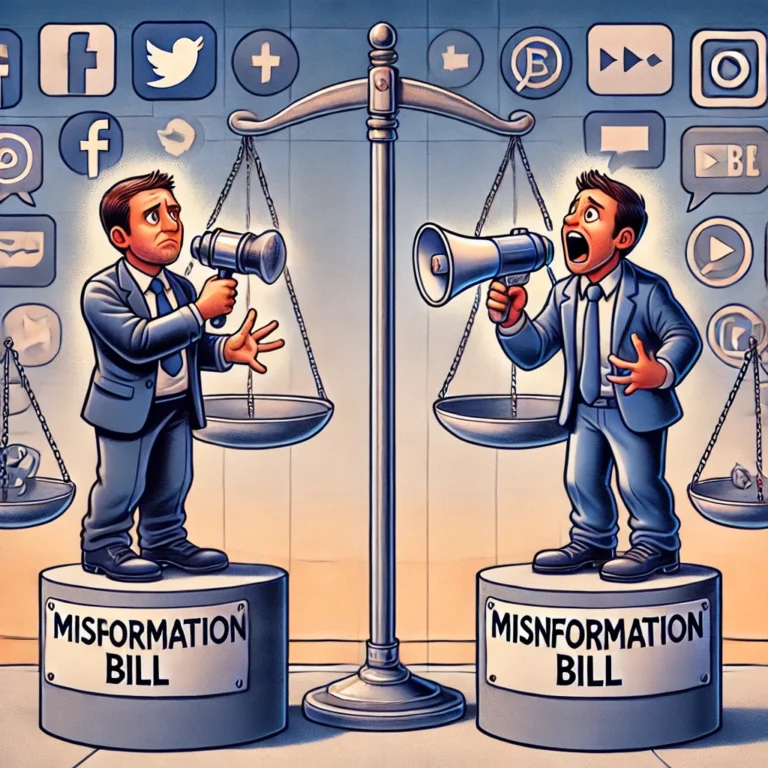

Understanding the Controversy Surrounding Australia’s Misinformation Bill
Introduction
Australia has recently introduced a new bill aimed at curbing online misinformation, which has ignited a storm of controversy and debate. Critics assert that this legislation represents one of the most significant encroachments on individual freedoms in the country’s history. This post delves into the nuances of the bill, the motives behind its introduction, and the widespread reaction it has provoked.
The Objectives of the Misinformation Bill
The key intent behind the bill is to manage the spread of falsehoods and unverified information that proliferate online. The Australian government argues that enhanced regulation of digital content is essential to protect public welfare and national security. The main objectives include:
- Safeguarding citizens from misleading information
- Enhancing accountability for digital platforms
- Promoting reliable and verified information
Content Regulations and Penalties
The bill proposes several stringent measures to regulate content, including:
Content Moderation Requirements
All digital platforms would be required to actively monitor and eliminate misinformation. They are expected to deploy both automated tools and human moderators to ensure compliance.
Heavy Fines and Legal Actions
Non-compliance with the bill would incur heavy penalties. Platforms failing to address misinformation promptly could face substantial fines and legal proceedings.
Public Reaction to the Bill
Upon its announcement, the bill has faced backlash from numerous quarters. The outcry primarily stems from concerns about the potential overreach of government and the suppression of free speech. Here are some of the significant reactions:
Civil Liberties Organizations
Groups that champion civil liberties argue that the bill could lead to arbitrary censorship. They contend that empowering the government to determine what constitutes ‘misinformation’ could undermine democratic principles.
Journalists and Media Houses
Several journalist organizations and media houses have expressed alarm, fearing that the bill might stifle open journalism and hinder the free flow of information. They emphasize the importance of preserving editorial independence.
Tech Companies
Major tech firms that operate social media and other digital platforms have voiced concerns over the logistical challenges and financial burden imposed by the bill. They point out that managing such extensive content regulation could be technologically daunting and expensive.
Possible Implications of the Bill
The bill’s potential enactment could have far-reaching implications for various stakeholders:
Impact on Freedom of Expression
At the core of the debate is the bill’s impact on freedom of expression. Critics argue that such legislation could lead to a chilling effect where people might self-censor to avoid potential legal repercussions.
Influence on Digital Innovation
The tech sector is also concerned about the bill stifling digital innovation. Excessive regulation could discourage new ventures and innovations due to the fear of non-compliance and consequent penalties.
Trust in Information
On the flip side, proponents argue the bill could restore public trust in information disseminated online. By curtailing the spread of falsehoods, the public could rely more on verified and credible information sources.
What’s Next for the Bill?
The future of the bill remains uncertain as it continues to garner both support and opposition. Currently, it is under parliamentary review and might undergo several amendments before any possible enactment. Stakeholders from all sides are persistently lobbying for their interests.
Conclusion
Australia’s new misinformation bill has undoubtedly stirred a significant amount of controversy and public discourse. The extensive debate reflects broader global concerns regarding digital misinformation and its regulation. As Australia navigates the complex path of balancing public interest with the protection of individual freedoms, its decisions may set precedents that ripple beyond its borders. Keeping informed about such legislative developments is essential in understanding their comprehensive impact on society.